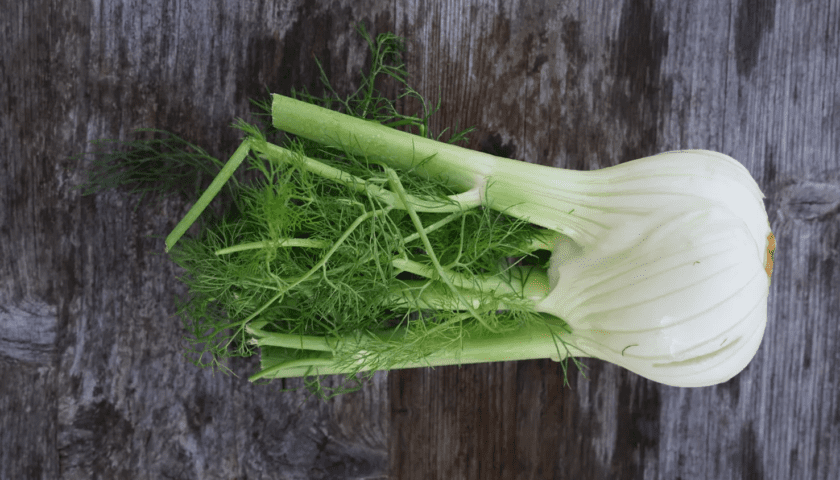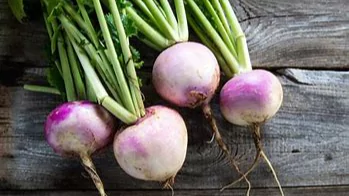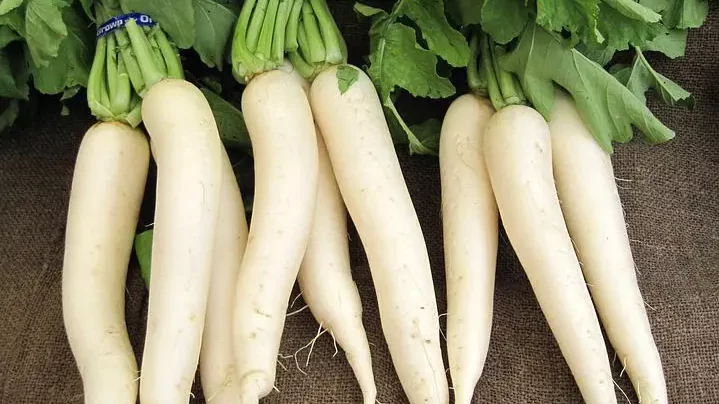About Fennel
Fennel is a celery-like winter vegetable with an interesting licorice flavor. Although the taste may start to grow at first, fennel offers great health benefits. This tree comes from the southern part of the Mediterranean, through planting, it has started to grow wild in the north, east and west. The scientific name for fennel is Foeniculum vulgare. It is an ancient herb with feathery leaves and yellow, dill-like flowers. Fresh fennel is known for its strong aroma, smelling a little like anise, and has a hot taste. The peak season for fennel is fall and winter.
Fennel can be identified by its white bulb and long green leaves. It combines with other vegetables, such as celery and parsnip. The whole fennel plant is eaten, including the bulbs, seeds, stems, and leaves. The bulbs can be chopped and added to salads, coleslaw, pasta dishes and more. It adds a rich texture to any dish and a delicious taste. The bulb contains many phenolic compounds including bioflavonoids, phenolic acids, tannins, coumarins and hydroxycinnamic acid.
Fennel seeds are rich in flavonoid antioxidants and are a source of micronutrients. Fennel seeds are also used to make essential oil, first by crushing them and then using a process called steam distillation.
Fennel is used in many cultures for its medicinal properties. Since the time of Hippocrates, it has been used as medicine.
The Romans considered fennel to be sacred and used it as a stimulant. The Greeks used fennel in their ceremonies as it represented happiness and prosperity, the Chinese and the ancient Egyptians used the vegetable as food and medicine.
In traditional Chinese medicine, it is used to help with a variety of ailments from constipation to increased breast milk production. It can also help relieve stomach upset, irritation, and relieve sore throats.
In Ayurvedic medicine, it is used because it is warming. It is believed to help balance all body types including vata, pitta and kapha. It is considered nourishing for the eyes and brain and is known to reduce digestive problems, such as flatulence. Herbs are also used in other traditional healing systems, including the Unani, Siddha, Indian and Iranian systems. Reports show that in traditional medicine, fennel is used to treat a variety of ailments, from simple problems such as colds and coughs to complex conditions, such as cancer, arthritis, colic, abdominal pain, diarrhea, constipation, liver pain and kidney problems.
Physical description

The cultivated plant is about one meter (three feet) tall and has stems that have finely divided leaves with many linear or awl segments. Gray garden umbels bear small yellow flowers. The small dry fruits are green-brown to yellow-brown ovals about 6 mm (0.25 in) long with five prominent spines. Seeds contain 3-4% essential oil; The main components are anethole and fenchone.
Many Varieties
Bulb-type fennels are grown for their — you guessed it — delicious bulbs, although you can use their leafy tops.
Bronze Fennel – a beautiful ornamental species grown for its fronds and seeds.
Florence Fennel – This is the fennel you want if you like to bring plump bulbs for cooking. Rhondo Fennel – A type of fennel that produces round bulbs and grows quickly.
Cantino Fennel – Go easy on the seeds. Preludio – The F1 hybrid produces a large round bulb.
Fennel Nutrition Facts
According to the USDA National Nutrient Database, fennel bulbs are a source of energy, vitamin C, dietary fiber, potassium, and other important minerals such as calcium, phosphorus, and sodium. . It provides small amounts of iron, magnesium, zinc, niacin, and vitamin K. It also contains vitamin B, beta-carotene, vitamin A, flavonols
Health Benefits
Helps prevent cancer
Fennel is high in flavonoids, as well as a sweet compound called anethole. Anethole is a free radical scavenger that destroys damaged cells before they become cancerous. Its effects have been studied by extracting essential oil from fennel
Promotes dental health
Chewing fennel seeds alters the pH balance of the mouth, thus reducing the risk of dental cavities. Research shows that chewing fennel seeds for just 10 minutes increases the production of water and produces a slight increase in mouth pH.
Reduces the risk of heart disease
As a vegetable, fennel fits well within the recommended guidelines for heart-healthy foods. Not only is fennel free of saturated fat and trans fat, but its fiber and antioxidants are also great protection against heart disease. Vitamin C has been shown to promote the production of nitric oxide, which relaxes the body and opens blood vessels through vasodilation. Vasodilation reduces the risk of dangerous blockages.


